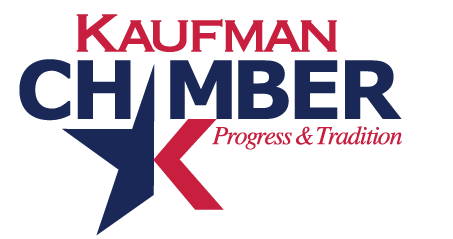Excellent branding can make the difference between a company that sticks around for decades and one that can’t keep up with the changing world around it, and this is an important lesson for new entrepreneurs to learn. Creating your brand—and then adapting it to meet the needs of your customers over time–is an essential part of your success, and it’s more than a logo or slogan. The identity of your business is tied up with your marketing choices, but it’s also connected to the way you run your business and treat your customers. If you’re unsure of which direction you want to go in, below are some tips to help you out, brought to you by Kaufman Chamber.
Know What to Look For
New entrepreneurs often get so excited about starting their business that they forget to make sure their branding has a plan behind it. Everything from your logo to your company goals should start with a strategy; otherwise, your branding is just a design. Who is your target audience? What message do you want to send with your business identity? Who are your competitors, and how does your branding differ from theirs? More importantly, do your customers know the answers to these questions?
Conduct a survey using social media to gather information from your shoppers; if their awareness isn’t what you expected, and if your metrics show that you’re not getting as much interaction as you should be–for instance, if you’ve paid for targeted ads online but your sales don’t reflect higher numbers–you may need to change things up. Try a few different marketing methods to find one that works for your specific needs, but do it before your income starts to decline.
Focus on Your Target Audience
Creating and maintaining the right brand for your business means you need to focus on your target audience, so it’s essential to know what they’re looking for and where they’re looking for it. Find out what’s popular in your industry and whether your brand aligns with any of those trends. Is your marketing relatable to the people you’re trying to attract? If not, it might be beneficial to partner with another company that can help boost the signal for your business.
Get Some Assistance
Partnering with another business isn’t the only form of help you can get. When it comes to some branding projects—such as creating/redesigning a logo—it can be beneficial to bring in a pro who has the advantage of an unbiased eye. The same is true for large-scale projects, such as overhauling a website to incorporate online sales.
There are some tasks you can handle yourself, however, such as creating branded marketing materials using free or low-cost online tools. Business cards, stickers, signage, and even websites are easier to DIY than ever these days. You can even find online tools that can help you put together eye-catching images for your marketing campaign. For example, if you’re planning to advertise on Facebook, look online for a Facebook ad template that allows you to create custom graphics by adding your own colors and fonts to these pre-made templates. You can have a great Facebook ad ready to download and use in no time.
Do some research before you get started, looking for inspiration online and creating a plan to unify every aspect of your marketing. After all, everything should be cohesive in order to help your customers identify your business easily.
When launching a marketing campaign, you may resort to a business loan in order to cover the cost. If you’re a newer business, you should be mindful of your personal credit score as lenders can use this information as part of determining your business’s creditworthiness. A low score may be indicative of an unresolved debt or other issue, so it’s wise to investigate before applying for a loan.
Figuring out the best practices for your branding strategy can take some time, but with these tips, you can create a solid plan that will enable you to hold onto your customers and keep them coming back. By streamlining your marketing ideas and doing some research, you can make a meaningful difference in the effects of your branding.




